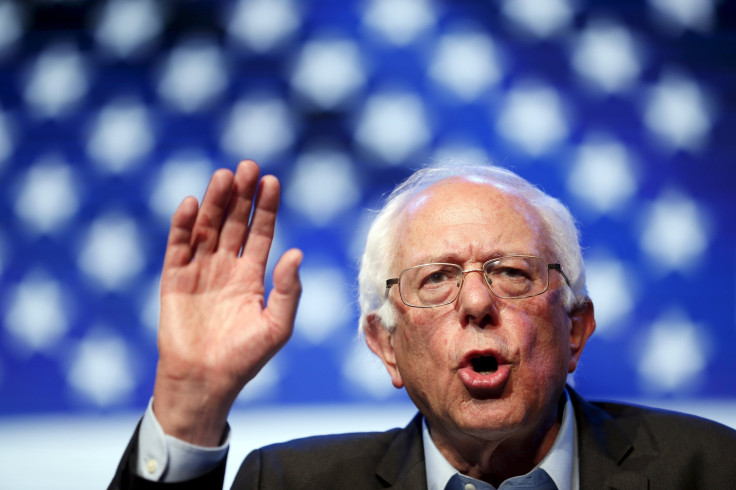Sanders Won’t Take Shkreli’s Money, Meanwhile Scientist May Have Found Alternative Toxoplasmosis Treatment

On Thursday, the Bernie Sanders campaign announced the candidate would not be taking Martin Shkreli’s donation, The Boston Globe reported. Why this outraged, public refusal of money? Could be the socialist condemns the capitalist's maneuvers or maybe it's simply the 74-year old politician is more media saavy than the 32-year old businessman.
Shkreli’s public humiliation first began when he obtained the manufacturing license for the drug Daraprim, the only treatment for Toxoplasmosis, a possibly dangerous parasitic infection. After acquiring the drug, the founder of Turing Pharmaceuticals raised its price from $13.50 to $750 per tablet (a more than 5,000 percent increase), according to The New York Times. First, Shkreli defended the price hike, but after a social media firestorm, Shkreli bowed to public pressure and promised to lower the cost during an interview with NBC News.
Yet Shkreli can't seem to stay out of the news. Now, he is making headlines once again but this time for doing absolutely nothing — in other words, he has not kept his promise. Shkreli said in an interview earlier this week the reason he has not fulfilled his promise and lowered the price is he hasn’t yet reevaluated demand for Daraprim.
"We have to find a safe price to lower it to,” he explained to Business Insider.
Safe price?
Meanwhile, a September press release from Turing states it will be meeting with patient and physician groups in order to learn their perspective and in the meantime the company would “work directly with any patient or institution to ensure anyone who needs Daraprim will receive it, including continuing to offer the medication without charge to qualified, uninsured patients.”
As Shkreli continues to maneuver, a research scientist at Indiana University may have already foiled the businessman's plans for world domination.
New, Better Drug
First a little background: Toxoplasmosis is grouped in a class of five parasitic diseases that have been targeted by the Centers for Disease Control and Prevention for public health action. (Shkreli’s decision to acquire the drug was timely and extremely shrewd, to say the least.) More than 60 million men, women, and children in the United States carry the Toxoplasma parasite, says the CDC, but few have symptoms because a strong immune system usually keeps the parasite at bay. However, HIV patients and others with compromised immune systems can develop terrible symptoms if they become infected and, in pregnant women, toxoplasmosis may lead to congenital birth defects.
Dr. William J. Sullivan Jr., professor of pharmacology and toxicology at the IU School of Medicine and his colleagues at Notre Dame University have been studying the molecular mechanisms underlying the parasitic infection. Results from their recent National Institutes of Health-funded study suggest they may have found a possible alternative treatment: an established hypertension drug, known as guanabenz.
"In mice, guanabenz treated the latent form of the infection," Sullivan told Medical Daily, explaining how even Daraprim doesn't cure the infection but only treats it. So far testing has only been in mice, however the research team is continuing to test the drug which may also be effective defeating multiple infectious agents, including malaria.
“The fact that this drug is already FDA-approved makes this great news,” said Sullivan, explaining that he has been approached by a non-profit organization who want to consider guanabenz for clinical trials (testing in humans). However, because the drug is FDA approved, he believes doctors might already prescribe it to patients "off-label," the term used when doctors repurpose an existing drug for another use. Importantly, in the tests conducted on mice, the drug worked within the tolerated range (when the dose was translated to what would be necessary for humans).
In the end, Shkreli may not matter after all. Science shoots... and scores!



























